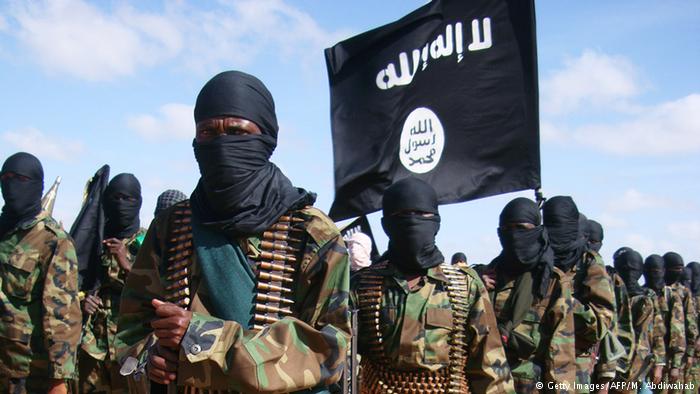For years, Khadijah Hawaja Gambo has been struggling with an uncomfortable question: What exactly drives young African Muslims to Islamism and eventually into the clutches of jihadi organizations like Boko Haram? “Many young Nigerians are so frustrated that they are desperately looking for an escape,” said the Nigerian human rights activist in an interview with DW. “Yet most don’t find that escape and just become more angry, frustrated and aggressive toward society.” From there, she explained, it is just a small step towards radicalization.
Gambo is a Muslim herself, and comes from the central Nigerian city of Jos, which last year became the site of bloody attacks carried out by the Islamist terror organization Boko Haram. Since 2011, she has been forced to look on as more than 17,000 Nigerians became victims of jihadi terror. Some 2.8 million people, especially in northern Nigeria, have been forced to flee their homes as a result. Gambo is appalled by the many suicide attacks often carried out by underage youths in the name of the radical interpretation of Islam that Boko Haram preaches.
UN study: Not motivated by religion
Nigeria is just one of many African countries having to deal with radical Islamic terrorist groups: Besides Boko Haram, which operates in northeastern Nigeria as well as adjacent territories, the militant group al-Shabab has been fighting for years to gain control of Somalia. A branch of al Qaeda, among others, is active in Mali. According to the United Nations, between 2011 and 2016 some 33,000 people in Africa were the victims of extremist violence. A UN report also found that young Muslims in Africa were less likely to be radicalized by religious motivation than by poverty and lack of opportunity. For its study “Journey to Extremism in Africa,” the UN Development Program (UNDP) spent two years interviewing some 500 former members of radical groups across the continent.
Khadijah Hawaja Gambo read the 128-page study and agrees with the authors’ findings. She believes those who truly understand Islam know that the radical interpretations of groups such as Boko Haram are deeply un-Islamic. “The less a person knows about Islam, the more susceptible they are to the ideology of terrorist organizations,” Gambo said. “People who don’t know about Islam believe in anything that such groups sell them as Islam.” The UNDP’s study seems to back Gambo’s theory: It found that 57 percent of those questioned knew little or nothing about Islamic religious texts. According to the study’s findings, six years or more of religious education reduced the likelihood of radicalization by some 32 percent.
Youth susceptible to extremist rhetoric
The most typical recruit for such organizations is not a religious fanatic seeking the foundations of his beliefs but rather a “frustrated person that has been marginalized and feels left behind,” summarize the report’s authors. They also found that extremist rhetoric fell upon fertile ground when it came to young people lacking opportunity in Africa’s poorest and most remote regions. One example thereof is al-Shabab, which has been recruiting fighters for Somalia’s civil war since 2006, not only in its home country but also in neighboring states. The group’s stated goal is to establish an Islamic theocracy on the Horn of Africa and to take part in a global “holy war.”
“Young people are promised work and money, they think they will be better off if they join these groups, and that they will be able to support their families,” said Salma Himid of the Mombasa-based human rights organization HAKI Africa. She, too, sees economic rather than religious or ideological motivation as the main thing driving young people to join jihadi groups. She supports the opinion of the UNDP’s Africa director, Abdoulaye Mar Dieye, who described the study’s findings as a wake-up call for African governments.
Himid, who has studied the topic of youth movements and Islamism for years, says that “paths to economic advancement for young Africans” are necessary if extremists are to be denied future recruits. She gives the following advice to young Africans: “Don’t fall for the traps set by these Pied Pipers! It is the wrong path!” Himid is also calling for the creation of information centers across Africa in order to allow young people to get out of Islamist organizations or, better still, keep them from joining in the first place.
Radical Islamism: ‘A very sensitive topic’
Although Khadijah Hawaja Gambo largely agrees with the UN study’s findings, she says that poverty is just one aspect of a very complex problem. “There are people in Boko Haram because they get cash for it. But there are also people that are there because they think that it is pleasing to Allah. We have to deal with these people.” It is a very sensitive topic she said, cautioning you have to be careful when dealing with it.
DW



